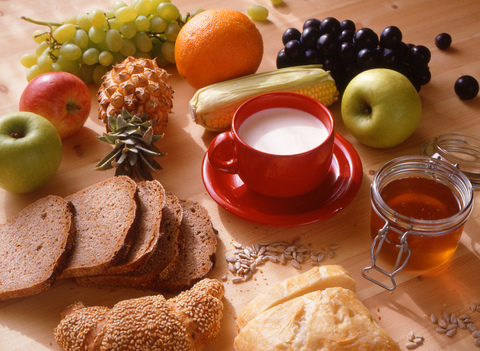March 26th, 2025

Have you ever had a sinking feeling when you bite into something and hear an unsettling crunch? You know you’ve broken a tooth, and worry about just how long it will take to get it fixed. You’ve heard that it can take two dental appointments and several weeks to get a crown, while the dentist waits for a dental lab to make your new tooth. But who wants to wait that long?
That’s why our Marysville, WA office invested time and money into the equipment and training necessary to offer CEREC single-visit crowns to our patients. CEramic REConstruction means that our dental practice can produce metal-free dental restorations to match your smile in just one visit.
CEREC uses CAD/CAM technology, an advanced computer program that acts as a dental restoration tool, so you don’t have to worry about dealing with the mess and discomfort of traditional crown placement. No more choking on dental trays while we make an impression of your teeth. When you come to us with a broken or damaged tooth, we perform a thorough examination and then create a 3D optical impression of your mouth. After that, we use CEREC technology to design and mill a precision ceramic restoration right in our office.
Feel Better Faster With CEREC Restorations
As a patient, you experience many benefits from this one-visit approach to dental restorations. CEREC allows Dr. Kelly Peterson to preserve more of your original tooth structure, which means less drilling for you. No temporary crowns are required, because we can take you from diagnosis to restoration in one office visit.
Patients say they love the results, too. Natural tooth-colored porcelain materials are used to create your restoration so it matches your natural coloring as closely as possible.
There is no mess, less discomfort, and no long wait with CEREC, and you get great results, too. Technology is changing the way we provide dental services. If you experience a broken tooth, or are thinking of replacing a cracked or damaged tooth, contact our Marysville, WA office today and ask whether a CEREC single-crown visit is right for you.
March 19th, 2025

Have you ever noticed your attention being instantly drawn to peoples’ teeth when they smile at you? Some people have dull and yellowing teeth, while others have teeth that appear bright white. Everyone’s teeth naturally dull over time because of aging and the contact your teeth have with staining foods, such as chocolate and coffee. However, teeth-whitening treatments can help you keep your teeth white for life.
Get Regular Treatments
The effects of teeth whitening or bleaching treatments are only temporary, so regular treatments at Northwest Smile Design are necessary to keep your teeth white for life. Bleaching too frequently, though, can wear away your tooth enamel. The effects of in-office bleaching can last for several months to a year, while you may need to repeat your use of at-home bleaching kits every few months to maintain your white teeth. Whitening toothpastes do not contain bleach, so you can use them daily. The American Dental Association suggests asking your dentist for advice on which treatment is best for you.
Have Realistic Expectations
Not everyone’s teeth can be turned bright white, according to the American Dental Association. Your teeth may naturally be a light yellowish color that lends itself well to teeth-whitening procedures, but bleach is not likely to be effective for grayish teeth. Brownish teeth fall somewhere in between.
Practice Good Oral Hygiene
Your teeth whitening efforts will not be as effective if your teeth are in poor health. Visible fillings, implants, or bridges that are metallic stand out against the white color you want to achieve. You can help prevent tooth decay and reduce your risk of needing these unsightly treatments by maintaining a good oral hygiene routine. In addition to brushing your teeth twice a day to remove dirt and potential staining agents, the actions below can promote a healthy mouth.
- Floss every day
- Visit Northwest Smile Design regularly
- Rinse your mouth with water after each meal and snack
- Limit sugary and starchy foods and beverages, especially between meals
March 12th, 2025

On March 17, everyone has a little Irish in them. St. Patrick’s Day is a joyous celebration of Irish heritage. The holiday originated as a commemoration of Saint Patrick, who brought Christianity to Ireland. The saint arrived in Ireland in 432 and earned the reputation of a champion of Irish Christianity. March 17th, the day of St. Patrick’s death, has been commemorated by the Irish for over 1,000 years. St. Patrick’s Day is still observed as a religious feast day by several Christian denominations, but it is better known in the public imagination as a rich celebration of Irish culture.
St. Patrick’s Day has been an official public holiday in Ireland since 1903. Each year, the Irish celebrate with a several-day festival that includes theater performances, music, fireworks, and festive parades. The celebration is also a public holiday in Northern Ireland, Montserrat, and Newfoundland and Labrador. In other parts of the world with heavy Irish populations, it is an unofficial celebration of Irish heritage. Parts of Great Britain, Canada, Argentina, South Korea, Switzerland, New Zealand, the United States, and Australia commemorate the holiday each year. Typical celebrations in these countries include drinking green beer, wearing green, eating traditional Irish foods, parades, and shamrock decorations.
Many people, Irish and non-Irish alike, take part in the “wearing of the green” on St. Patrick’s Day. In fact, the color originally associated with Saint Patrick was blue. His use of shamrocks to explain the Holy Trinity to the Irish made the green clover emblematic of the holiday, leading to the traditional green attire worn by thousands on St. Patrick’s Day. Other little-known facts about St. Patrick’s Day include the following:
- Each year, the United States and Ireland face off in a rugby competition called the “St. Patrick’s Day Test.”
- Montreal celebrates the holiday with an annual parade, which has been held each year since 1824. The Montreal city flag even features a shamrock in its corner, as a nod to its Irish heritage.
- The Guinness World Records named St. Patrick’s Day the “Friendliest Day of the Year.”
- Along with Valentine’s Day, St. Patrick’s Day is one of the most widely celebrated saint’s day in the world.
No matter your cultural heritage, St. Patrick’s Day is a great time to let loose and celebrate your inner Irish-ness! Don your greenest attire and exclaim “Erin go Bragh!” (Ireland forever!) to everyone you meet. From Dr. Kelly Peterson - have a great St. Paddy’s day!
March 5th, 2025

While you don’t have to wait to start eating right, March is the month the Academy of Nutrition and Dietetics asks everyone to pay special attention to what goes into our bodies. The Academy has designated the month of March for focusing the public’s awareness on what they eat.
What Not to Eat
The academy points out that the foods you eat have a direct effect on the health of your teeth and specifically on tooth decay. Bacteria rely on carbohydrates to thrive. That is why Dr. Kelly Peterson and our team at Northwest Smile Design tell our patients to cut back on both candy and sweets. They consist of simple sugars that feed the bacteria in your mouth and enhance tooth decay.
It’s the hidden sugars that will cost you, though. Get in the habit of reading labels on food and looking for products with added sugar. This includes ingredients that end with the suffix “ose.” When it comes to nutrition, these foods offer little value beyond satisfying that sweet tooth.
What You Should Eat
Turn to foods that not only taste good but are good for your teeth too. Dairy products, for example, provide the body with nutritional items that support tooth enamel. Foods high in protein feature phosphorus, a nutrient critical to oral health.
You can’t really go wrong by adding color to your diet, either. Fruits and vegetables make for a colorful plate and a healthy meal. Use some caution with acidic fruits like oranges or even tomatoes, because the acid can erode tooth enamel. It is better to include these foods in a meal instead of eating them by themselves.
Remember, good nutrition is something you should worry about all year long, not just when celebrating National Nutrition Month. March just serves as a fun reminder that eating right is a proactive step in managing your dental health.
We encourage you to give us a call at our Marysville, WA office to learn more!










 Website Powered by Sesame 24-7™
Website Powered by Sesame 24-7™